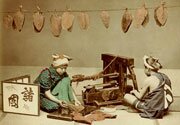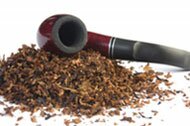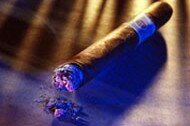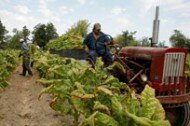A class-action lawsuit seeking at least $696 million in damages ended Tuesday in a mistrial, after a St. Louis Circuit Court jury could not agree on whether tobacco giant Philip Morris deceived customers with its marketing of light cigarettes.
After jurors heard four weeks of testimony, they deliberated more than four days before indicating Tuesday morning that some of them were unwilling to continue. They were split 8-4 on the side of the plaintiff, one vote short of the nine needed for a civil case verdict.
Plaintiffs’ attorney Stephen Swedlow said he was disappointed, and would ask for a new trial.
Philip Morris attorneys George Lombardi and Beth Wilkinson said the deadlocked jury meant the lawyers seeking damages could not prove their case. “This is fundamentally not a plaintiffs’ verdict,” said Lombardi.
The lawsuit, filed 11 years ago, claimed that light cigarette packages promised lower tar and nicotine, but were made from the same tobacco as regular cigarettes. Smokers might compensate for the lower nicotine by inhaling longer and more deeply, so the light cigarettes are just as dangerous are regular ones, the plaintiffs’ attorneys claimed.
Philip Morris attorneys argued that the cigarettes are different, that they contain less tobacco than Marlboro Reds, more ventilation and a longer filter. Inhalation compensation has been known for years, and all smokers smoke differently, the cigarette-maker’s lawyers said.
Actual damage estimates ranged from $696 million to $911 million, which averages to just over a dollar per pack of the cigarettes at issue sold in Missouri from early 1995 until the end of 2002, the period covered by the suit.
Juror Jim Chase, 56, sided with Philip Morris. He thought the most convincing evidence came from a study that showed tar and nicotine levels went up in smokers who switched from light to regular cigarettes. “That has to tell me that they were lights to some extent,” he told a reporter.
Leonard Hill, 50, favored the plaintiffs. “Too many documents showed Philip Morris knew what was going on,” he said.
The class’ representative plaintiff, Deborah Larsen, 60, said she was disappointed but saw this as a chance to try again. “It might give us an opportunity to look at things and present them a little differently,” she said. “But it also gives Phillip Morris that chance, too.”
This was the second big-stakes tobacco trial in Judge Michael David’s court his year. In April, big tobacco companies prevailed in a sweep of verdicts against hospitals seeking to recoup the costs of treating smokers’ diseases. That case took two and a half months to present.

 RSS Feed
RSS Feed Twitter
Twitter



 Posted in
Posted in  Tags: light cigarettes,
Tags: light cigarettes, 








